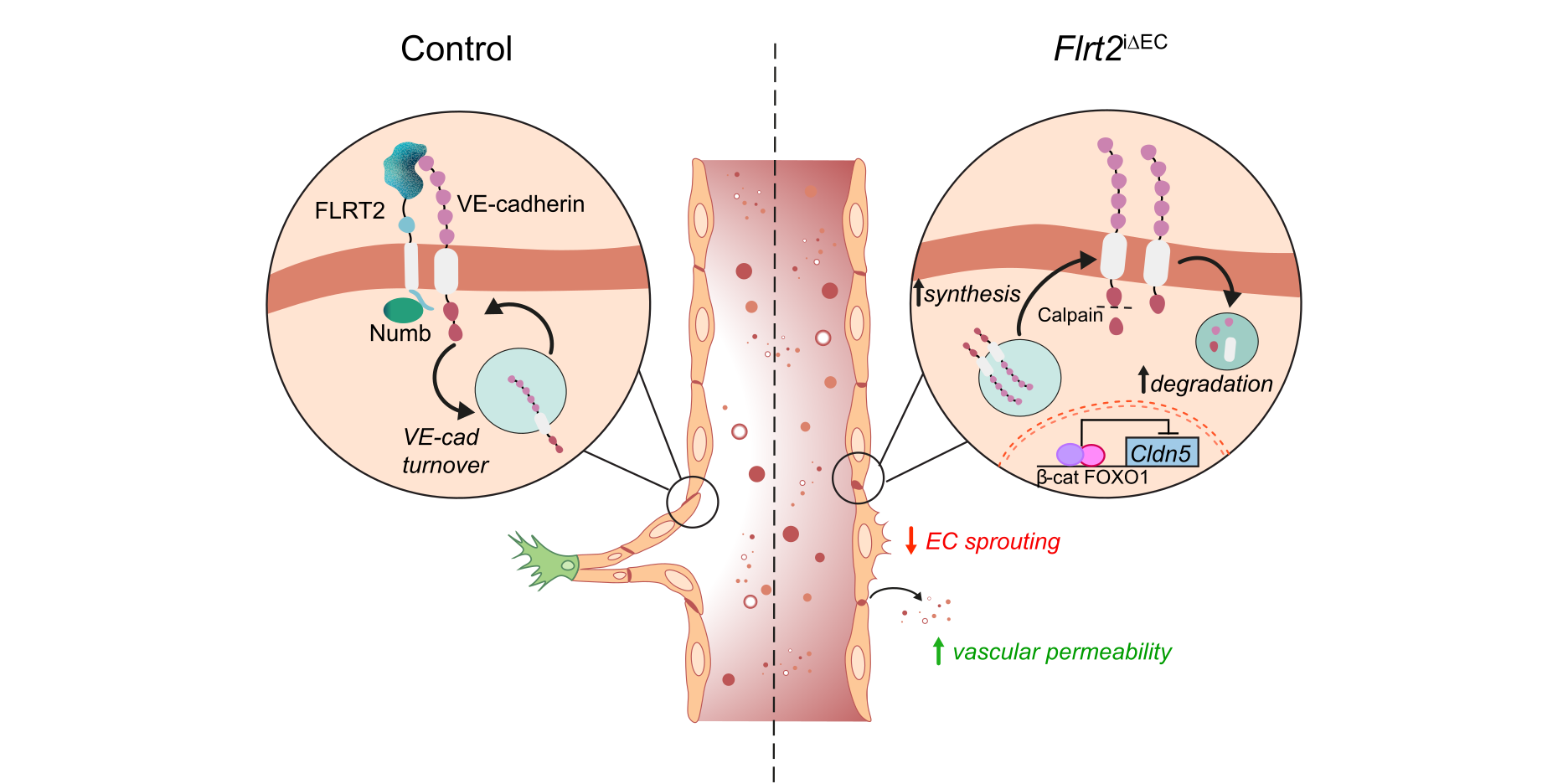
The proper development of the central nervous system (CNS) relies on tightly coordinated vascularization in synchrony with organ formation and growth. Cecília Llaó-Cid and Blanca Peguera have investigated the angiogenic function of FLRT2 (Fibronectin Leucine Rich Transmembrane protein), a molecule previously known for its role in the neuronal system but not yet studied in the CNS vasculature.
Their research revealed that FLRT2 is prominently expressed in veins and capillaries of the CNS. Through a combination of mouse genetics, in vitro and in vivo experiments, histology, and high-resolution expansion microscopy, they demonstrated that FLRT2 regulates angiogenic sprouting by influencing VE-cadherin turnover and Claudin5 expression, a tight junction protein critical for blood-brain barrier integrity. In summary, FLRT2 has emerged as a key regulator of CNS vascular development, influencing venous-mediated angiogenesis and the interplay between adherens and tight junctions necessary for maintaining restricted vascular permeability.
Find the full article here:
Vascular FLRT2 regulates venous-mediated angiogenic expansion and CNS barriergenesis